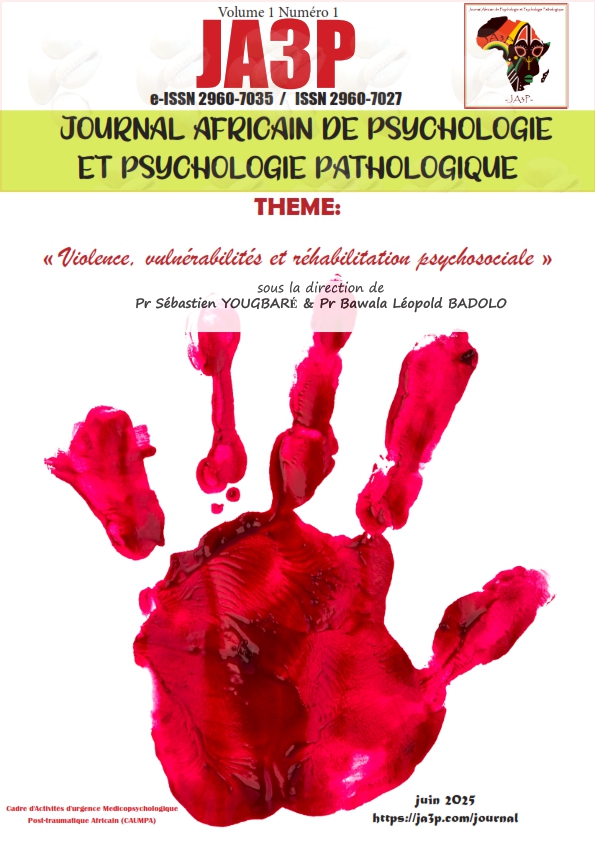Comportements d’Attachement, Aspects Socio-Culturels et Comportements de Soin de Mères Déplacées Internes au Burkina Faso
DOI :
https://doi.org/10.2025/ja3p.v1.s2.2Mots-clés :
comportements d’attachement, comportements de soins maternels, socio-culturels, déplacées internes, Burkina FasoRésumé
Le vécu des attaques terroristes et le déplacement des populations constituent des expériences potentiellement traumatisantes pour les victimes et spécifiquement pour les mères et leurs nourrissons ou enfants. En plus, les comportements de soin face aux comportements d'attachement dépendent des représentations socio-culturelles de la relation d'attachement parent-enfant. Les comportements d'attachement de l'enfant consistent en des stratégies de recherche de réponses de sécurité des donneurs de soins parentaux, sous-tendues par les attentes de disponibilité, de proximité et de réconfort de l'enfant. Seulement, les comportements de soins sont appris et internalisés suivant les cadres socio-culturels des donneurs de soins et les expériences d'évènements traumatiques, comme les attaques terroristes qui fragilisent les relations émotionnelles parents-enfants. Notre travail, à travers des entretiens semi-directifs et des observations cliniques, a consisté à explorer les comportements d'attachement et les comportements de soins de deux mères déplacées internes en prenant en compte l'influence des représentations socioculturelles qui teintent la qualité du caregiving. L'étude révèle que les mères, confrontées aux besoins de sécurité de leurs enfants, adoptent des comportements de soins contrastés : une certaine indisponibilité face aux appels de l'enfant et une surprotection excessive. Ces comportements sont liés aux traumatismes subis lors du déplacement, mais également influencés par les représentations socio-culturelles.
Téléchargements
Publiée
Comment citer
Numéro
Rubrique
Catégories
Licence
© Journal Africain de Psychologie et Psychologie Pathologique 2025

Ce travail est disponible sous la licence Creative Commons Attribution 4.0 International .
Cette œuvre est mise à disposition selon les termes de la licence Creative Commons Attribution 4.0 International (CC BY 4.0)





